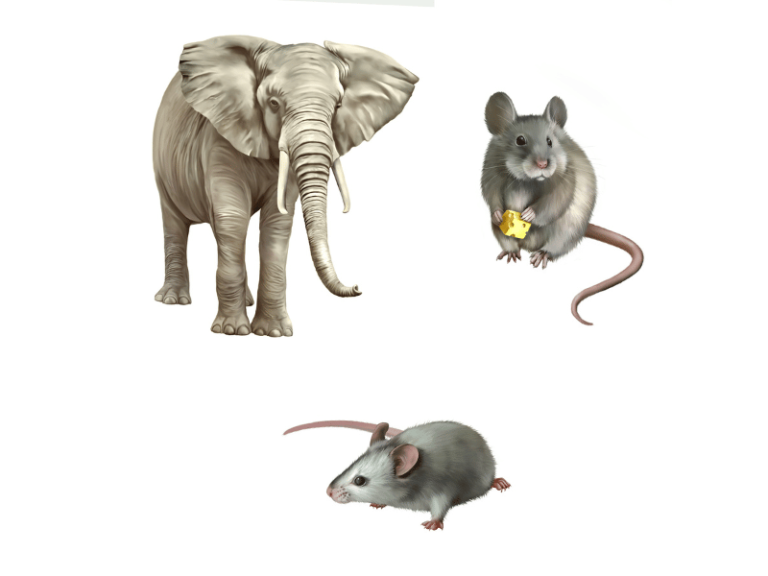In ancient times, there was a fable that described how elephants, despite their size, feared small mice because mice could crawl into their trunks and reach their nasal cavities. Although this is a fable, it has some biological basis.
Large animals have large body cavities and orifices, sometimes even bigger than the entire bodies of small animals. Small animals do not recognize what these orifices are or where they lead. Once inside, they cause significant disturbance to the large animals, which react strongly. This strong reaction often makes the small animals panic, causing them to burrow even more frantically and sometimes bite, resulting in severe irritation and even direct harm to the large animals. Occasionally, mosquitoes or small insects may accidentally fly into a person’s nostrils or ear canals, but such occurrences are very rare.
When an animal encounters another unfamiliar animal, they often avoid each other without contact, resorting to direct confrontation only when necessary. For example, in earlier times, when animals first saw humans, they did not know to fear them. However, as humans frequently hunted and killed them with guns or other tools, animals learned to flee upon hearing human sounds, attacking only when absolutely necessary.
In reality, elephants do not fear mice and are unaware of them. Elephants and mice have vastly different habits and lifestyles, with little interaction. Generally, mice do not dare to approach elephants, and the chances of a mouse actually crawling into an elephant’s trunk are extremely rare.

